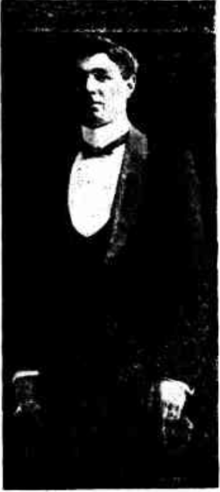
Vítězslav Augustín Rudolf Novák was a Czech composer and academic teacher at the Prague Conservatory. Stylistically, he was part of the neo-romantic tradition, and his music is considered an important example of Czech modernism. He worked towards a strong Czech identity in culture after the country became independent in 1918. His compositions include operas and orchestral works.
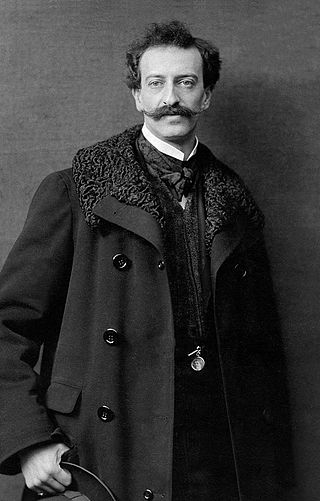
Oscar Nathan Straus was a Viennese composer of operettas, film scores, and songs. He also wrote about 500 cabaret songs, chamber music, and orchestral and choral works. His original name was actually Strauss, but for professional purposes he deliberately omitted the final 's'. He wished not to be associated with the musical Strauss family of Vienna. However, he did follow the advice of Johann Strauss II in 1898 about abandoning the prospective lure of writing waltzes for the more lucrative business of writing for the theatre.

Franz Schreker was an Austrian composer, conductor, librettist, teacher and administrator. Primarily a composer of operas, Schreker developed a style characterized by aesthetic plurality, timbral experimentation, strategies of extended tonality and conception of total music theatre into the narrative of 20th-century music.

María Teresa Gertrudis de Jesús Carreño García was a Venezuelan pianist, soprano, composer, and conductor. Over the course of her 54-year concert career, she became an internationally renowned virtuoso pianist and was often referred to as the "Valkyrie of the Piano". Carreño was an early adopter of the works of one of her students, American composer and pianist Edward MacDowell (1860–1908) and premiered several of his compositions across the globe. She also frequently performed the works of Norwegian composer and pianist Edvard Grieg (1843–1907). Carreño composed approximately 75 works for solo piano, voice and piano, choir and orchestra, and instrumental ensemble. Several composers dedicated their compositions to Carreño, including Amy Beach and Edward MacDowell.
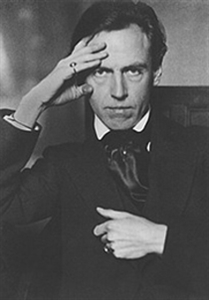
Cyril Meir Scott was an English composer, writer, poet, and occultist. He created around four hundred musical compositions including piano, violin, cello concertos, symphonies, and operas. He also wrote around 20 pamphlets and books on occult topics and natural health.

Oskar Nedbal was a Czech violist, composer, and conductor of classical music.

Sir Frederic Hymen Cowen, was an English composer, conductor and pianist.
(Samuel Victor Albert) Alberto Zelman was an Australian musician and conductor, and founder of one of the predecessors to the Melbourne Symphony Orchestra.

Archibald Joyce, born Arthur Joyce, was an English light music composer and bandleader of the early 20th century. He is known for his popular short waltzes for dancing, such as Dreaming, Songe d'Automne and Vision of Salome. His waltzes were part of the White Star Line's orchestra repertoire, and likely played on the fatal maiden voyage of Titanic.
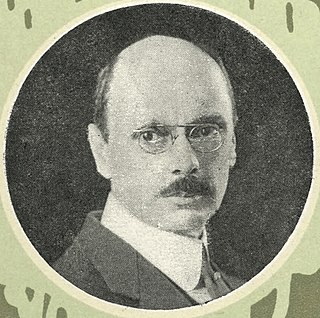
George Howard Clutsam was an Australian pianist, composer and writer, best remembered as the arranger of Lilac Time. Clutsam published over 150 songs.

George Marlow was an Australian theatrical entrepreneur born in London of Jewish extraction, noted for bringing melodrama and pantomime to Sydney audiences in the early 1900s. His name has been frequently mis-spelled as "George Marlowe".

Dora Estella Knatchbull was a British composer and pianist. She composed works for orchestra, keyboard and voice, and music for opera and ballet, including ballets for performance by the dancer Adeline Genée.
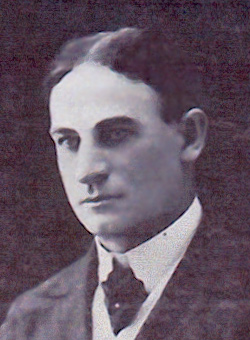
Albert Edward Bailey, better known as Bert Bailey, was a New Zealand-born Australian playwright, theatrical manager and stage and screen actor best known for playing Dad Rudd, in both mediums, the character from the books penned by Steele Rudd.

Edmund Duggan was an Irish-born actor and playwright who worked in Australia. He is best known for writing a number of plays with Bert Bailey including The Squatter's Daughter (1907) and On Our Selection (1912). His solo career was less successful than Bailey's. His sister Eugenie was known as "The Queen of Melodrama" and married noted theatre producer William Anderson, for whom Duggan frequently worked as an actor, writer and stage manager.
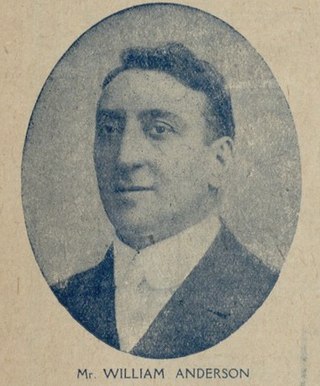
William Anderson was an Australian theatre entrepreneur.
Emmeline Mary Dogherty Woolley, commonly referred to as E. M. Woolley, was an English-born Australian pianist, organist and composer.
Wallie Herzer(néWalter Henry Herzer; 15 April 1885 San Francisco – 15 October 1961 Redwood City, California) was an American composer of popular music, music publisher, and pianist. Herzer flourished in music prior to and during World War I.

Annie May Constance Summerbelle was an Australian composer of light classical and popular music. She was the third daughter of Captain William and Honoriah Summerbelle of Double Bay. Her sister, Stella Clare, married Francis Joseph Bayldon, a master mariner and nautical instructor. From the late 1880s she was a student of Alice Charbonnet-Kellermann, with Summerbelle's earliest compositions appearing in the early 1890s.

Henriette Blanke-Belcher, also known as Henrietta Blanke-Belcher and later as Henriette B. Melson, was an American composer of popular music, especially waltzes and ragtime tunes.

The Bunyip, also known by the longer title The Enchantment of Fairy Princess Wattle Blossom, was written by Ella Palzier Campbell. The pantomime was a highly successful musical comedy that toured Australia for a decade within Fuller Brothers theatre circuit. The show was produced by Sydney entrepreneur Nat Philips. The premiere of the show ran for at least 97 performances and was revived several times over the following decade.
